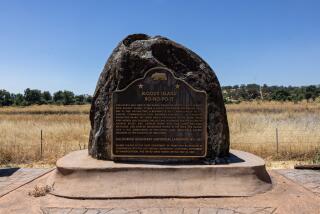Changing Lifestyles : In Leningrad, They Long to Live in St. Petersburg : Some Soviets want to restore the city to its original name and bring back a taste of old imperial Russia.
- Share via
LENINGRAD, Soviet Union — Here on the historic streets where the Russian monarchy fell and Soviet Communism first took command, there is a grass-roots call to restore the city’s original name.
“The people want to change the name back to St. Petersburg because we are returning to our history and to the spirit of Russia,” Lyubov B. Krasilnikova, 40, an engineer, said as she walked out of a long-neglected church which is now reopened and undergoing renovation.
“It means more to us to be Russians than it did before, and we’re trying to bring back the personality of Russia. This includes restoring the old names.”
Many historic names are being revived in the Soviet Union these days as its people, disappointed with seven decades of Communist rule, seek to recover their proud past.
To put their stamp on the country’s history, Communist leaders replaced traditional names for cities, towns and streets with names honoring their own heroes, many of whom were later discredited.
Cities named for the late President Leonid I. Brezhnev and Mikhail I. Kalinin, a Bolshevik leader, have already reverted to their historic names. Most recently, Moscow’s main shopping avenue, Gorky Street, was given back its historic name, Tverskaya Street.
But the battle to change the name of Leningrad is more complicated. For decades, Soviet people have been taught to revere V.I. Lenin, the leader of the 1917 Bolshevik Revolution and founding father of the modern Soviet state. Until recently any criticism of Lenin was considered political heresy.
That’s changing now, particularly in the country’s non-Russian republics.
One of the first things the Lithuanians did in their drive for independence was to take Lenin’s name off the main street in the capital, Vilnius, and replace it with the name of a historic Lithuanian hero.
In Tbilisi, the capital of the southern republic of Georgia, Lenin was stricken from the name of a polytechnic institute, and cheering crowds greeted the removal of a huge statue of him in the city’s main square last week.
In Chervonograd, a city in the western Ukraine, authorities also took down a monument to Lenin early last month. And Lenin statues have been vandalized in other parts of the country.
Even in Moscow, a bust of Lenin was first turned to face the wall of the City Council building, then finally removed altogether last month. And there is open discussion of removing Lenin’s preserved corpse from the famous tomb on Red Square and giving it a conventional burial.
But to change the name of the city where Lenin’s revolution triumphed? Where his image is ubiquitous? Where one rides the Lenin subway to Lenin Station and emerges on Lenin Square?
“It’s one thing to change the name of Gorky Street, it’s another thing to change the name of a city named after Lenin,” said Boris N. Nikolsky, editor of Neva, a literary and political journal here.
Czar Peter I, known as Peter the Great, founded the city in a swampy area on the Neva River in 1703. He named it after his patron saint and directed the construction of a grand European city with baroque architecture, picturesque canals and beautiful vistas--a “window to the West.”
It remained St. Petersburg until 1914, when the name was deemed too Germanic for the capital of a country then at war with Germany. It became Petrograd, and remained so until 1924, when, after Lenin’s death, the city was renamed once more in his honor.
Not surprisingly, Leningrad’s Communist Party leadership is in the forefront of those opposed to changing it back again.
“I’m against changing the name of the city,” Yuri P. Belov, a secretary of the Leningrad regional Communist Party committee, said in an interview. “I think it would offend the honor of the generation that lived through the tragic and historic past of Leningrad.
“Lenin never thought about having a city named for him,” Belov continued. “But the thing is, the city was named after him because he personified the ideal of justice in society to the people. The decision to name the city after him was made by the people, not by the leadership.”
The Communist leadership is not alone in wanting to preserve the name Leningrad, the only official name most locals have ever known for their city.
“The name St. Petersburg would sound strange to me--I’ve always lived in Leningrad,” said Vladimir I. Vasiliyev, 40, an economist for the government’s planning office.
“The name Leningrad is connected with the revolution that Lenin led, and we have not yet given up on that revolution.”
A 72-year-old homemaker, who lived through the World War II siege of the city and who remembers Lenin from her childhood, said she opposes any change.
“We are used to calling this city Leningrad in honor of Lenin because he was a great leader,” she said as she stood in a long line at a grocery store. “Of course, changing the name would be a great insult to Lenin’s memory.”
Advocates of reviving the original name take issue with such arguments.
“They say the city’s name was changed to Leningrad in 1924 because of a call by the working people, but in reality it was an administrative act,” argued Gleb S. Lebedev, chairman of the Leningrad City Council’s committee on culture, during a recent program on Leningrad television.
“A decision to return the historic name of Leningrad would be legal and correct,” Lebedev contended.
Others argue that Lenin himself would have supported the switch.
“It would not offend Lenin,” said Yelena V. Palamarchik, 28, a structural engineer. “It’s well known that Lenin himself was against such things (as excessive honors). He was a very modest man.”
While he was alive, Lenin made it clear that he did not want to be an idol. After his death, his widow, Nadezhda Krupskaya, fought in vain to prevent his name and image from being idolized.
“Krupskaya said Lenin was against a cult--of his name or his personality,” Vladimir K. Arro, a playwright and chairman of the Leningrad City Council’s committee on glasnost and the media, commented in an interview. “She said the best memorial to Lenin would be a developed socialist society, not his likeness on statues or his name on buildings and streets.
“Restoring the original name would not insult the name of Lenin, but restore historic justice.”
But Arro conceded that the name change will be difficult for many people, especially for those like himself who lived through the World War II siege and the other difficult, but proud, times in the city’s past.
“A lot of people will feel emotional loss if the name is changed--even I,” Arro said.
Then there are those who take a position somewhere between the two poles.
Some, like Igor V. Lysenko, director of the Fund for the Revival of Leningrad, argue that St. Petersburg is “too pretentious a name. It was the name of a capital of an empire. And it does not sound Russian at all,” he said.
Many of those people advocate a compromise: a return to the name Petrograd.
Still others like the original name of the city but contend that in its current condition, with its buildings blackened from pollution and crumbling from age and neglect, it does not deserve to be called St. Petersburg.
“It might not be right to return the name of the city, when it looks as bad as it does right now,” said Natalya N. Sidorova, public relations director for the Fund for the Revival of Leningrad. “St. Petersburg is too beautiful a name for a city in such bad repair.
“I think we should first try to restore it to look a little more like it did . . . then we should bring back the old name.”
The question of restoring the name is nevertheless being debated by members of the Leningrad City Council, and advocates of the change predict it is only a matter of time before it is proposed officially.
And while the debate goes on, the name St. Petersburg is becoming more common among the city’s residents.
A rock ‘n’ roll group and some independent newspapers are using the original name. St. Petersburg pins can be bought at newspaper stands. And a new club of young intellectuals in the city calls itself the University of St. Petersburg.
“Piter,” the city’s old slang name, which has never totally died out, is now heard regularly on some local television shows.
There is an old Soviet joke about this city. For obvious reasons, it is making the rounds again:
An old man is called to the local police station for questioning.
“Where were you born?” an officer asks.
“In St. Petersburg,” the man replies.
“Where did you go to school?” the officer asks.
“Petrograd,” the man replies.
“Were do you live?” the officer asks.
“Leningrad,” the man says.
“Where do you want to live?” the officer questions.
The man sighs. “St. Petersburg.”
More to Read
Sign up for Essential California
The most important California stories and recommendations in your inbox every morning.
You may occasionally receive promotional content from the Los Angeles Times.










